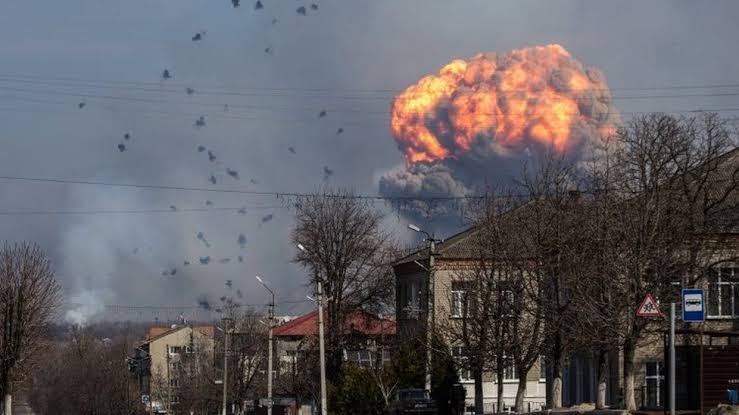Shakhtar Donetsk Nigerian-born coach, family in trauma after fleeing Ukraine
The Nigeria-born football coach, his wife and three teenage children are now in Hungary, having endured a fear-laden journey from the eastern city of Kharkiv, Ukraine, in the wake of the Russian invasion on 24 February. Ojimadu, a grassroots coach of Under-11 and Under-13 teams affiliated to Shakhtar Donetsk said his children – aged 18, […]

The Nigeria-born football coach, his wife and three teenage children are now in Hungary, having endured a fear-laden journey from the eastern city of Kharkiv, Ukraine, in the wake of the Russian invasion on 24 February.
Ojimadu, a grassroots coach of Under-11 and Under-13 teams affiliated to Shakhtar Donetsk said his children – aged 18, 15 and 13 – are still “traumatised” by their recent experiences.
He told BBC Africa that after sheltering for a few days in their basement, he eventually decided the family had to leave their home as the attacks on Kharkiv got worse.
He recalled, ”Hearing explosions getting closer and watching the news, you hear this person was killed here, that person was killed there.
“There was nowhere safe. Even when we were in the basement, we were also hearing explosions, windows shattering, and people screaming and running here and there.
“The first day we tried to get to the train station, as we were driving closer to the train station, we heard explosions. It could be about 500 metres from us – heavy explosions, two or three times.
“You hear this shattering noise, you don’t know where it is coming from, you don’t know where to walk to. We saw explosions, we saw houses being destroyed. It is one of the scariest things anybody can ever see in life.
“As a father and as a parent, it is quite difficult looking at your child in such a situation. You cannot give answers to all the questions, and you don’t know what is going to happen.”
He said the family eventually got a train from Kharkiv to the capital Kyiv on 27 February, three days after the invasion.
“Our lives were really in danger, that was why we made that decision to move as quickly as possible,” Ojimadu said.
“There was an issue with the train in Kyiv, we had to wait seven hours at the train station before it could move. And that was when the fight was heavy in the capital, we could hear explosions from where we were, and we could not get out of the train.
“It was very traumatic. Having in mind that safety of the kids is paramount, we just had to make the journey out of Ukraine.”
Ojimadu said the family had endured a 28-hour journey from Kharkiv to Lviv, a city in western Ukraine around 70 kilometres (43 miles) from the Polish border.
He said he is keeping in touch with his employers at Shakhtar Donetsk amid the war situation in Ukraine, and he hoped that the conflict would end soon so that normalcy can return.
”I had to inform my superiors (at Shakhtar) before I left.
“They understand as everybody is just trying to stay safe. I informed them that we had to leave for now for safety, and they are encouraging us,’’ he added.
